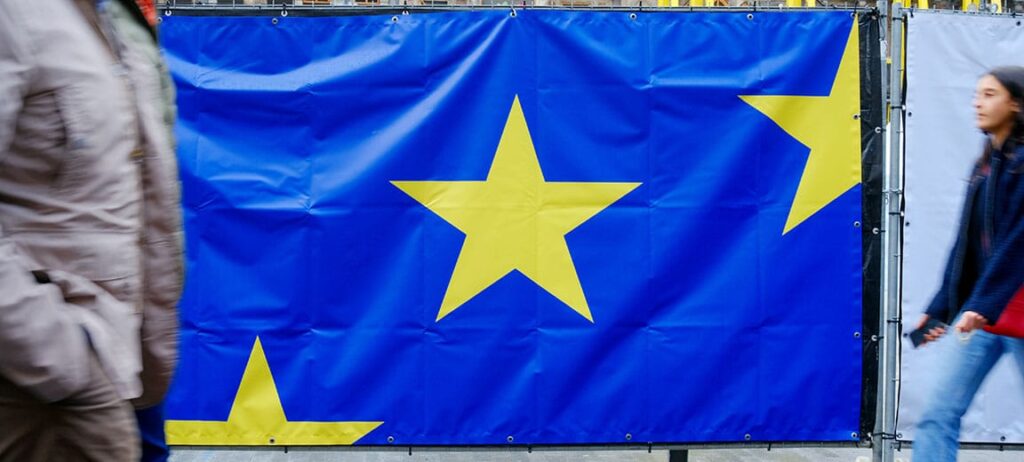Following the European elections on 9 June, the game has changed. The new configuration of the European Parliament promises a complicated legislature, as the establishment of the far right has materialised and increased its influence in the chamber.
Although fragmented, far-right forces in Germany (AfD), France (Marine Le Pen’s National Rally), Italy (Giorgia Meloni’s Brothers of Italy), Spain (VOX), Poland (Jarosław Kaczyński’s Law and Justice) and the Netherlands (Geert Wilders’ Freedom Party) will gain significant, although not majority, representation in the EU’s six most populous countries. The 73 seats of the European Conservatives and Reformists (ECR) group, which includes Meloni’s party and VOX, will be added to the 58 seats of the Identity and Democracy (ID) group, which includes Le Pen and will gain nine seats after 2019, for a total of 131 MEPs.
Adding other far-right parties that ran without the ECR or ID, such as Germany’s AfD, the number reaches 164 MEPs from far-right lists, more than 22% of the entire parliament. Although they do not have a solid majority, their rise increases their ability to influence the agenda, block initiatives or pull the European People’s Party towards more extreme positions.
Reinforcing denial in the face of the climate crisis
The elections were a blow to the Eurosceptic and reactionary movements. These forces have gone from being the exception to the rule, having already gained power in the governments of several countries, including Italy. The results of the European elections now position them as actors with bargaining power and influence over the future of the Parliament. This change could threaten fundamental achievements of the EU, such as the Schengen area, which they are generally committed to making more restrictive, one of their many proposals to protect borders. It could also hinder the implementation of the 2030 Agenda for Sustainable Development, jeopardising critical goals such as climate action, gender equality and the reduction of inequalities.
The increased presence of denialism goes hand in hand with the puncture of the Green Party, which has been overtaken by the ECR and ID. The ecologist list, known for its defence of the environment, had the second worst result compared to the previous elections: it fell from 74 to 52 seats, from fourth to sixth place. All this suggests a tendency towards scepticism on climate change, one of the main points of the 2030 Agenda.
2030, the year when the closer it comes, the further it goes
The supposed “woke threat” targeted by the far right is directed against the points of progress: climate justice, gender, sustainability… While social networks are a space for dissemination, they are also a space for the spread of disinformation. The results of the European elections, in which the deniers and the Eurosceptics have shown the devastating effects of this ideological battle: spread mainly on social networks, some of the hoaxes have found an echo in the mainstream media. An analysis by Politico shows that almost 45% of MEPs’ TikTok accounts are run by conservatives and 26% are linked to the far right. Identity and Democracy, the coalition that includes Le Pen and Salvini, stands out as the most active on this platform.
The 2030 Agenda is the target, and it is from certain high political spheres that campaigns promoting these ideas have been carried out, as in the case of Donald Trump. The former president claims that the UN is trying to destroy the US economy through Agenda 2030. This is the same logic that most far right and ultra-nationalist politicians support and propagate, constantly spreading this message on their social media channels and in media outlets aligned with their ideology. For the organisation We Are Water, this phenomenon is partly due to “the lack of convincing agreements in the COPs”, which, they explain, “is leading to growing symptoms of social despair, creating fertile ground for the spread of demagogic messages”.
The elected Parliament will have the final mandate before the 2030 deadline. It will play a key role in progressing towards the goals. While the European People’s Party repeats its victory and is able to find alliances outside the extreme right, the fact that the ultras have reached a percentage of seats that exceeds 20 per cent will be decisive for the shift that the Populares decide to take: to moderate towards the centre under socialist influence, moving closer to the 2030 Agenda, or to move towards the extreme right, hardening their discourse and setting back 2030 by fifty years.


